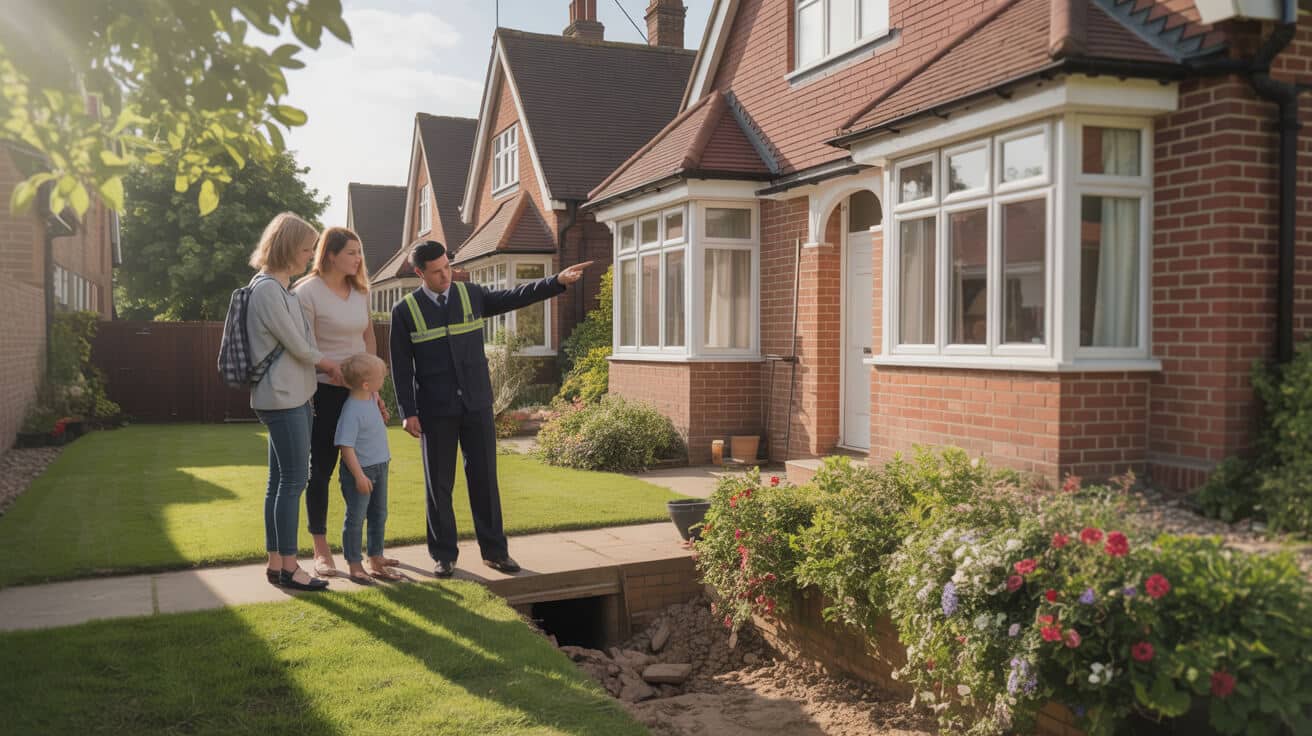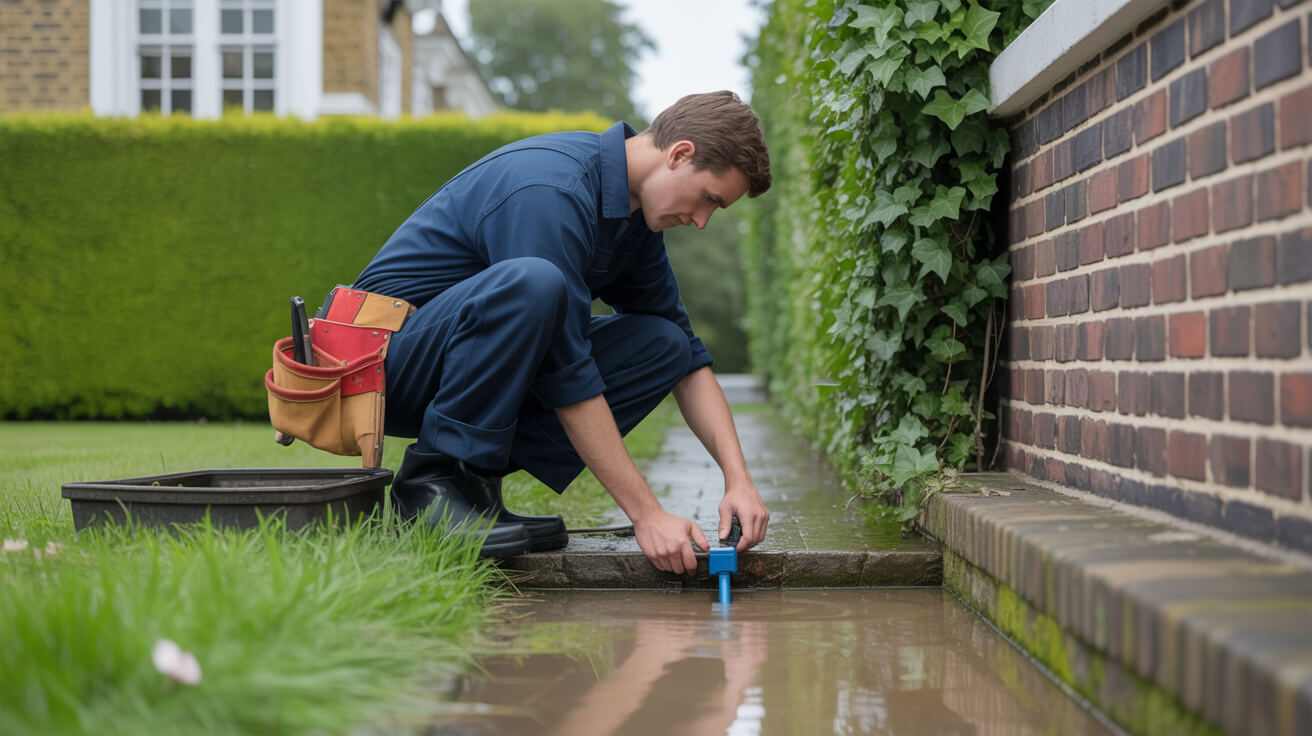 What to Do If a Dispute Arises Over Plumbing Repair Costs
What to Do If a Dispute Arises Over Plumbing Repair Costs

When Plumbing Costs Turn Stressful: How Can You Quickly and Fairly Resolve a Dispute?
When an unexpected plumbing invoice hits your inbox and the numbers feel off, stress is immediate—and action feels risky. Homeowners, landlords, managing agents, and commercial property owners across the UK see this scenario play out more than you’d think. Every year, thousands of people face the frustrating mix of unclear bills, disputed work, or hasty add-ons. The real headache isn’t the pounds and pence—it’s the uncertainty: “Am I being overcharged? Is this fair? Is it worth fighting—or will this drag on forever?”
Clarity beats conflict—the side with written facts usually wins.
What sets apart those who resolve these disputes efficiently from those who end up in endless back-and-forth? Documentation, method, and calm escalation. UK consumer law doesn’t just support you—it’s built to halt misinterpretation, “he said-she said”, and inflated bills. The fastest way to reclaim control is to construct your approach around solid evidence, concise communication, and stepwise escalation—never a heated argument or an emotional threat.
A plumbing dispute is less about who shouts loudest and more about who arrives with the best-documented facts. Let’s get practical: spot where these disputes start, gather the evidence that truly counts, use the process that actually works, and deal only with partners who make all this friction irrelevant.
Why Do So Many Plumbing Cost Disputes Happen—and How Can You Spot Trouble Early?

Plumbing is hands-on, urgent, and often invisible—so it’s no surprise that it’s a breeding ground for billing confusion. Whether you’re managing tenanted property, overseeing commercial facilities, or sorting your own home, the triggers are almost always the same: something changes, communications misfire, and records vanish.
Where Bill Disputes Begin
- Unexpected Extras: A “simple” leak grows into a multi-hour callout, but you never sign off on added work or materials.
- Estimate vs. Quote Confusion: “Fixed price” turns out to be a ballpark, with wiggle room the plumber claims is standard for your location or fault type.
- Hidden Fees Creep: The call-out charge, overtime, or weekend rates weren’t on the original paperwork—or maybe weren’t mentioned at all.
- Doubts About Quality: You spot subpar materials, or the work fails inspection standards, but the invoice says “job completed.”
- Poorly Kept Records: Scrawled notes, vague texts, or missing receipts make it impossible to prove who agreed what.
According to Citizens Advice, documentation—no matter how basic—trumps memory every time in UK disputes. Digital message threads, time-stamped photos, even a quick video sent before work starts, can tip the balance your way. The absence of documentation is the most common root cause of commercial, residential, and landlord-tenant rows.
Many plumbing cost disputes are born not from intent to mislead, but from hurried diagnosis and missing paperwork.
Landlords and agents face even higher standards: under property law, compliance isn’t a courtesy, it’s a regulation. Documentation covers your regulatory risk as much as your wallet.
Early Warning Signs You Can’t Ignore
- Last-minute “urgent” upgrades that break the budget.
- Vague itemised lines (“miscellaneous materials”).
- Refusal or hesitation to supply quotes in writing, or to confirm extras via email/text.
If any of these come up, hit pause and ask for written clarity before work continues. With the right partners, disputes become rare. Where they do happen, spotting them early is your biggest leverage.
What Documentation and Evidence Actually Decide the Outcome of a Billing Dispute in the UK?
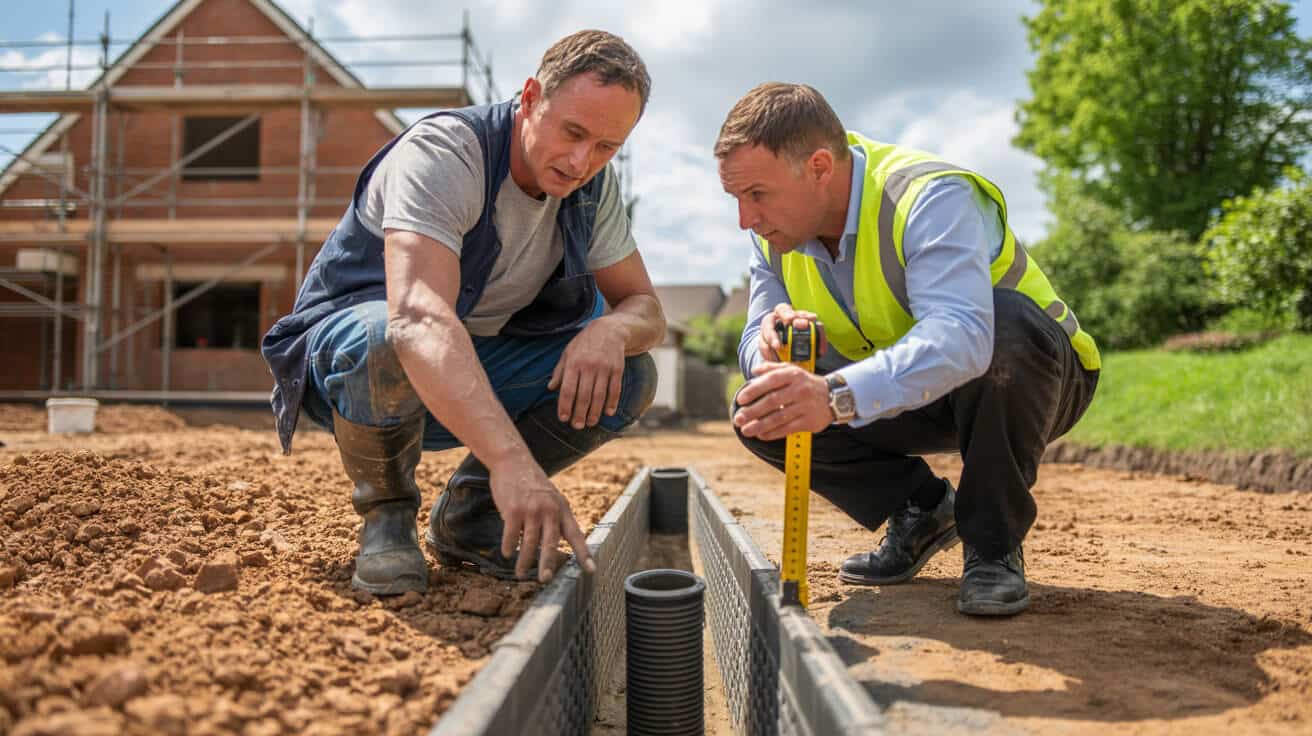
Winning a plumbing repair dispute is never about personality—it’s about paperwork. In British consumer law and real-world mediation, what matters is your hard evidence: the who, what, and when of every quote, approval, variation, and outcome.
Know the Deal: Fixed Quotes, Estimates, and Daywork
- Fixed Quote: Agreed price for a defined scope—if scope changes, both sides must agree on any cost difference before the work goes ahead. If the final invoice is 30% higher and there’s no documented agreement for the extras, you have strong legal grounds.
- Estimate: A best guess, not a guarantee. But material increases above 10–15% must be signposted to you and ideally signed off (even via text).
- Daywork: Charged by the hour or half-day, often open-ended. Always insist on daily breakdowns and time logs signed on site.
Reliable Evidence That Stands Up Under Scrutiny
- Written Trail: Emails, texts, app communications, before/after photos, digital timesheets. Even WhatsApp or site messaging is accepted as evidence (so long as it’s unedited).
- Signed Extras: Every “we found X, so fixed Y” must be documented and acknowledged—for both homeowner and commercial jobs.
- Completion Records: Photos of installed fittings, test results, regulatory logbooks (WRAS, G3, CP12 for landlords) form a powerful compliance shield.
If anything’s missing, your first step isn’t confrontation—it’s a concise, written request for all documentation from your supplier. Reputable firms treat this as a normal part of client care.
Written records—not haggling or hindsight—determine how cost disputes pan out.
Documentation isn’t suspicion. It’s mutual protection. It’s also what Property Ombudsman, WaterSafe, and Trading Standards lean on if things turn contentious.
How to Assemble a Winning Evidence Pack: What Actually Matters?

To get resolution—whether you’re a landlord, letting agent, or direct homeowner—you’ll want to create an evidence folder that builds your case without drama. A methodical evidence pack is persuasive, time-saving, and often the difference between a headache and a refund.
Assemble Your Case Like a Pro
- Chain Every Message: Begin with the quote, link every message or call, and finalise with the invoice. Copy WhatsApp threads or email summaries into a timeline if needed.
- Mark Up the Invoice: Highlight any lines you contest (“Pipe upgrade £320, not agreed. No signed variation supplied.”)
- Photographs of the Work: capture leaks or problem areas before the job, work-in-progress if possible, and every finished element. Attach images of materials/packages for proof of spec.
- Engineer or Diagnostic Reports: Ask for diagnostics (e.g., “found XYZ, replaced with ABC—part #123”). For bigger jobs (especially G3 unvented or commercial), one-page reports are routine.
- Certificates and Test Results: WRAS/WaterSafe for general plumbing, G3 for cylinders, CP12 for gas jobs; all required for compliance.
Organising Your Evidence
- Chronological timeline—each entry dated, even handwritten as a backup.
- Label each proof point (“Quote Approval 11/3/2024”, “Variation Agreement 13/3/2024”).
- Store in cloud or email chain—never just paper, which can be misplaced.
Preparation isn’t paranoia—it’s the fastest way to resolve cost debates before they start.
A neat timeline, free of angry commentary, is what insurance, ombudsmen, and even most contractors respond to best.
What’s the Smartest Way to Start the Dispute Without Escalating Tension?
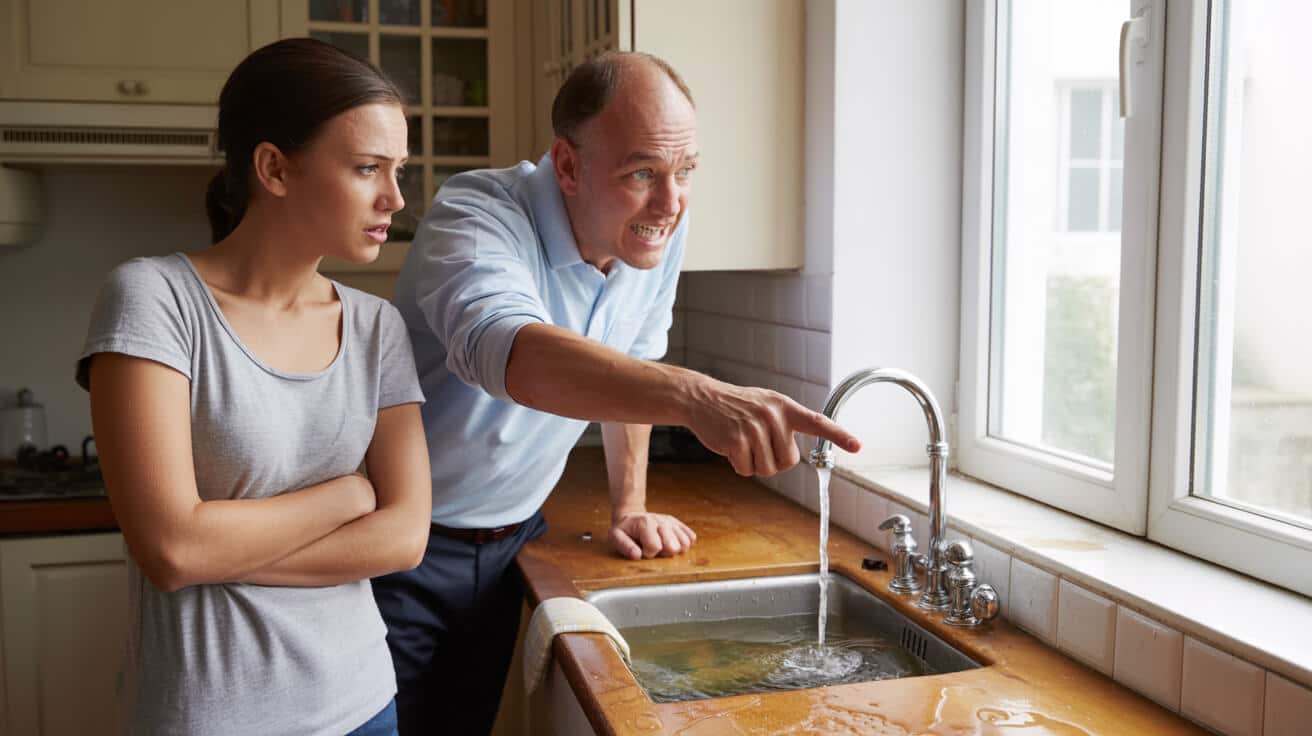
Your first step in any billing dispute is the most pivotal. How you open communication sets the emotional tone and narrows or widens your options. Blunt demands or anger slow things down. Calm, fact-first emails move you toward resolution and document your professionalism.
Stepwise Approach to Opening a Billing Challenge
- State Your Understanding: Re-affirm the original agreement, attachment included (“See the attached signed quote dated 11/3/2024 for bathroom pipework at £600”).
- List Discrepancies: Identify clearly the lines or extras you’re contesting—give line-by-line references, not vague “the bill was too high”.
- Propose a Solution: Suggest options (removal of disputed charges, partial refund, detailed explanation).
- Reference Legal Protections: Mention the Consumer Rights Act 2015 (“work must be to a reasonable standard and any extras agreed in writing”)—this anchors your message in accepted standards.
- Retain All Replies and Replies-to-Replies: Your written communication becomes your audit trail.
A non-combative opening makes it easy for the other party to engage—this isn’t just “nicer”, it’s self-serving. Well-documented, respectful correspondence is what regulatory bodies expect, and is more persuasive for both negotiation and escalation.
Clear language and open invitations for explanation secure faster, fairer outcomes than threats or accusation.
Landlords, agents, and business stakeholders—this is standard operating procedure. It’s not “soft”—it’s smart, and it protects your business reputation as much as your bottom line.
How Do Plumbing Regulations, Standards, and Compliance Shape Your Dispute Rights?

Even if the only complaint is the bill, plumbing repairs are never just about cost. If the workmanship, safety, or compliance lags, your rights assemble rapidly. In the UK, the legal and technical standards plumbers must follow create powerful levers.
Core Rules and How They Help You
- Building Regs (Part G/H/L): Hot water, cold supply, sanitation, energy—all covered. If your job turns out non-compliant, especially in a rented or business context, you’re often entitled to full refund or enforced rework.
- WRAS and WaterSafe Standards: Only use approved products and qualified engineers. Missing proof of these can void insurance and create legal exposure for agents and landlords.
- G3 Certification—Non-negotiable: unvented cylinder installation, repair, or sign-off must be done by a G3-certified engineer, with documentation. Anything else is a breach.
- Consumer Rights Act 2015: “Reasonable skill and care” isn’t just a slogan. If work can be proved below standard or non-compliant, you have claim rights to demand repairs, refunds, or compensation.
A non-compliant installation is a regulatory and safety landmine, not only a billing problem.
If you suspect non-compliance—missing paperwork, rushed work, shortcutting—issue a structured written request for inspection, ideally from another certified (WRAS, WaterSafe, G3) engineer. In commercial or landlord settings, this step is doubly important.
How to Benchmark Charges and Tackle Overbilling With Real-World Data

Sometimes, the line between a fair fee and a padded invoice isn’t obvious. That’s where market benchmarking steps in. Trusted third-party guides, local authority data, and open competitive quotes arm you with real leverage—even if you’re not an expert.
Challenging With Confidence: Benchmarks and Leverage
- Research Local Rates: Citizens Advice and Checkatrade give area-averaged ranges—London’s standard, for example, is £60–£130/hr plus VAT, with materials at verifiable trade markup.
- Isolate Outliers: Any component or labour cost that outpaces area averages by more than 20–30% deserves a written, documented justification.
- Itemise Everything: Leading firms (like Plumbers 4U) offer granular, line-by-line breakdowns for transparency. If yours doesn’t—ask for it.
- Get a Rival Estimate: Even after the job, obtain a second opinion for the same work. Share the rival breakdown with your original contractor.
Standard UK Plumbing Works Price Table
Here’s your field-ready cost sense‑check:
| Task Type | Typical Range (£) | Scope Included |
|---|---|---|
| Leak Trace/Repair | 140–350 | Fault-finding + repair |
| Cylinder Replacement | 730–1,550 | New cylinder, labour, docs |
| Boiler Service | 75–160 | Landlord CP12, full check |
| burst pipe Repair | 120–350 | Labour, materials, test results |
| radiator Instal | 160–450 | Valve fit, balancing |
| Drain Unblocking | 100–210 | Jetting/rodding as req. |
Always refer to documentation—prices only make sense if they match the written, pre-agreed scope.
Market benchmarks put you back in control—never let ‘industry standard’ go unproven in writing.
What to Do When You Hit a Dead End: Mediation, Ombudsman, and Legal Resolution
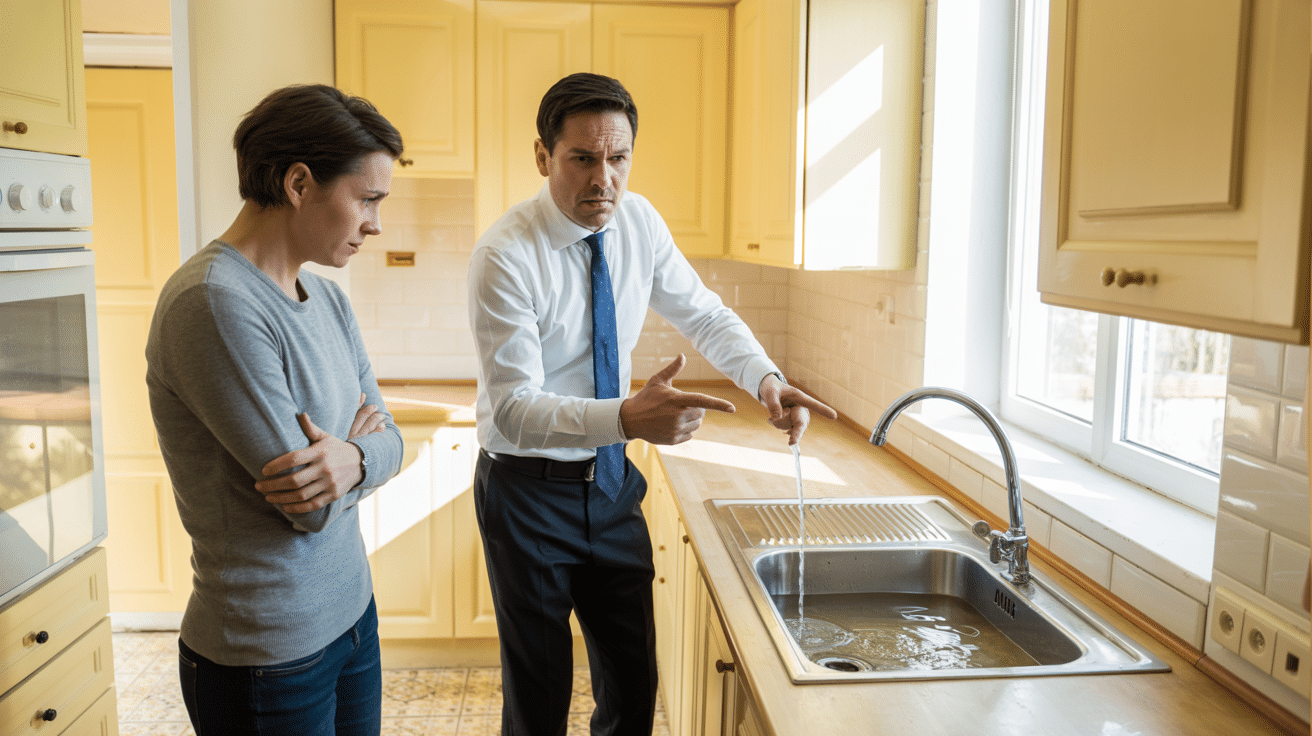
Even with the best approach, some disputes won’t cool down with negotiation alone. That’s where UK alternative resolution tools and ombudsman services become essential—especially for landlords and commercial clients, but just as important to homeowners.
Paths Beyond Direct Negotiation
- Alternative Dispute Resolution (ADR)/Mediation: WaterSafe, TrustMark, Checkatrade, and others link certified plumbers to accessible ombudsman and ADR processes—all before court action. These schemes are fast, affordable, and usually result in binding decisions.
- Fast-Track Mediation: Urgent, high-value, or complex disputes? RICS and CEDR offer structured mediation, ideal for commercial jobs or property portfolios.
- Ombudsman and Insurance Channels: If works are insurer-backed or part of a council contract, always seek a formal ombudsman opinion after exhausting contractor dialogue.
- Letter Before Action: A last-resort but powerful step—set out your claim, what’s at stake, your evidence, and a firm deadline. Citizens Advice and Which? offer templates.
Well-documented evidence and a measured escalation process resolve most cost rows before lawyers get involved.
If court becomes necessary (small claims court for low-value disputes), your documentation and process history strengthens your case and typically expedites an equitable resolution.
How Can You “Dispute-Proof” Future Plumbing Work—So Issues Don’t Repeat?
The strongest cost controls don’t happen after the invoice—they start with who you book and what you demand up front. Smart property managers, forward-thinking homeowners, and every major agent embed strict approval, documentation, and verification into every job.
Prevention Tactics: Locking Down Cost Certainty
- Only Use Accredited Engineers: WRAS, WaterSafe, and G3 where needed—every Plumbers 4U job sends you proof as standard, both before and after work.
- Written Approval, Every Time: Never allow add-ons, extras, or time extensions to proceed without explicit written confirmation—SMS, email, or app. Refusal to provide it? Walk away.
- Track All Variations and Extras: On-site changes must be documented, time-stamped, and initialled by both sides.
- Insist on Completion Evidence: Photos, compliance records, G3/CP12 test logs—the best firms supply these on the same day.
- Maintain Your Own Archive: From WhatsApp to images, collate every record. Most disputes begin because someone didn’t keep a copy.
A little paperwork today saves months of wrangling and regret later.
With firms like Plumbers 4U, rigorous documentation isn’t a favour, it’s policy. Your digital job sheet, aftercare reminders, and compliance certificates arrive before you even have to ask.
Plumbers 4U: Your Partner for Transparent Plumbing—Where Disputes Are the Exception, Not the Rule
When your brand, investment, or home is at risk, the partner you choose makes or breaks your experience. Plumbers 4U isn’t just a service—it’s a shield. Every aspect of our process is designed to eliminate friction, protect your compliance status, and guarantee you never feel out of your depth.
What Sets Plumbers 4U Apart
- Accredited Engineers Only: WRAS, G3, WaterSafe, and all major gas, heating, and compliance certs as standard—photos and ID on arrival, every job.
- Line-by-Line Quotes, No Surprises: Fixed pricing up front; every extra or upgrade requires written signoff. No estimate sleight of hand, ever.
- Instant Proof, Start to Finish: You receive job photos, test results, and all regulatory docs before the job closes out.
- Lockstep Aftercare: Landlord certificate scheduling, reminders, and technical support as part of our duty of care—property professionals’ headaches, already solved.
- Compliance First: Our engineers never skip, guess, or fudge. Every step—from materials to method—is traceable, certs attached.
Your trust, time, and compliance are protected when you book with a transparent partner.
Don’t settle for “as seen on TV.” Choose the provider whose paperwork beats any conflict before it starts.
Take Back Control—Book Plumbers 4U and Keep Plumbing Costs Predictable
Plumbing headaches don’t start with a leak—they start when you gamble with documentation or clarity. Fix that risk up front. Plumbers 4U delivers everything you wish every contractor did:
- Full UK-wide coverage with WRAS, WaterSafe, and G3-approved engineers as default.
- Transparent, line-by-line quoting on every job, with no extras without written approval.
- Regulatory, photographic, and aftercare documentation for every outcome—plain and accessible.
Protect your investment, your property, and your peace of mind. Book with Plumbers 4U and turn every job into a paper trail that keeps you in command.
Frequently Asked Questions
What kind of evidence does a UK invoice dispute panel actually want to see before siding with you?
Written and photographic records—not memories—are what shift the outcome of UK plumbing invoice disputes. Adjudicators, mediators, and ombudsmen aren’t swayed by dramatic accounts or handshakes; they follow the paper trail: a signed or app-approved quote, timestamps showing any changes or extras, and before-and-after photos of the work area. Every text, email, and receipt adds to this chain, showing exactly what was promised, adjusted, and delivered. If you’re missing records for anything billed as an “extra,” don’t hesitate to ask your plumber to provide those details using email or message so it’s all time-stamped.
When paperwork speaks, arguments fall away; every job step documented is a future insurance policy.
Which evidence consistently carries weight with UK dispute panels?
- Signed, fixed quotes or digital approvals outlining scope and price.
- Written, time-stamped confirmation of any changes—no verbal-only extras.
- Clear, dated before-and-after job photos (phone-captured is fine).
- Itemised invoices with matching payment references (“REF: Invoice 1905/Smith”).
- Certificates for safety-regulated works, such as G3 (unvented), CP12 (gas), or WRAS (water fittings).
- Communication logs showing parts swaps, delivery issues, or approved delays.
Missing just one of these? Under UK regs, you have every right to ask—engineers like Plumbers 4U supply full digital logs per job. Every line, every approval, every certificate: that’s defensible work.
How can you create that evidence mid-job?
- Take photos at every stage, not just at the end.
- Loop job updates through group chats or tracked email if multiple stakeholders are involved.
- Keep copies of all draught quotes and variation emails.
- Pay only by traceable means—bank transfer or card—so every stage matches invoice references.
How do UK regs and trade codes back you when contesting a plumber’s bill?
A UK plumbing invoice isn’t just subject to your agreement—it’s anchored by the Consumer Rights Act 2015, plus trade rules from TrustMark, WaterSafe, and WRAS. Engineers must deliver “reasonable care and skill,” and only bill within the scope of a signed quote or approved extras. Surprise costs, unapproved extras, “provisional” jobs (where the work didn’t fix the real fault), or “ghost” hours can all be contested, with industry bodies backing you if push comes to shove.
Trade association membership raises the bar: WaterSafe or TrustMark firms must provide written quotes, work breakdowns, and help with dispute resolution. Compliance jobs—think unvented cylinders, gas work, or major installations—trigger extra legal paperwork (G3, CP12, manufacturer sign-off) you’re entitled to request before paying.
What legal and trade checklist matters most?
- WRAS compliance, so every fitting meets UK water supply law.
- Certificates (CP12, G3, Pressure Test) wherever safety or law requires.
- Clear evidence that all invoices and written updates map onto signed changes or extras.
- Visible effort to fix root problems, not just patch the symptom.
If a contractor ducks these basics or shrugs off trade codes, escalate: you’re empowered under law and by every major trade scheme.
What if the invoice is missing something vital?
- Withhold only the disputed portion—by law, you must state what and why.
- Alert the contractor, in writing, with what’s missing.
- If work concerns compliance (water, gas, electrical), trade bodies will intervene if asked.
Tapping into firms like Plumbers 4U means this standard isn’t an opt-in–it’s embedded in every job. WRAS compliance? Documented. G3 and CP12 certs? Supplied every time.
What’s your best move when faced with an inflated plumbing invoice in the UK?
When a bill doesn’t match your expectation, don’t begin with threats or emotion—go straight to documentation. List every discrepancy in writing: attach your original signed quote, mark up every line that’s changed (especially “extras” or new parts), and ask the contractor to clarify, update, or evidence any disputed charge. Use calm, direct language—never accusations—and set a reasonable deadline for corrections (7–14 days is typical).
Keep every reply, call, and photo. This running log isn’t just for ombudsmen: it shows the court—and your contractor—you’re diligent and solution-focused. If the installer stalls, refuses paperwork, or answers only by phone, note this in your audit trail. Officially recognised letter templates for this kind of dispute are freely available (see Citizens Advice, Which?).
Professional, written dialogue is your best tool—it cuts through noise and gets you seen by every decision-maker as the credible party in the room.
Red flags and pitfalls to avoid:
- Never pay the full bill while you dispute any lines; remit only for uncontested items and flag your records as such.
- Skip emotional escalations—focus on facts, not frustration.
- Always ask for dispute responses in writing—no details should live only in a call.
- Never alter or delete your original evidence, even if the job changes later.
A data-driven, transparent approach gives you authority in every further step, whether negotiating, mediating, or escalating.
Which mediation and trade schemes actually resolve plumbing invoice disputes fairly—and with speed?
You don’t need to jump straight to court in the UK. Several robust, fast mediation and ombudsman options exist that are respected by both contractors and industry regulators:
- RICS Consumer Mediation Scheme: Ideal for jobs where technical, surveyor-level assessment is key.
- CEDR Fixed Fee Mediation: Homeowners and businesses alike use this for clear, fee-transparent dispute resolution.
- Home Improvements Ombudsman: Focussed on high-stakes or regulated jobs—process is explicit and standards-led.
- Civil Mediation Council: A direct link to impartial mediators with sector insight.
Trade associations—like TrustMark or WaterSafe—will initiate their own internal resolution before formal mediation. Their involvement makes resolution smoother and signals you’re working the system in good faith.
Why is mediation usually the smartest, fastest path?
- Mediators and ombudsmen look for evidence, not argument—making your job logs, photos, and certifications king.
- Cost and time are far lower—most disputes resolve quickly and at a fraction of the cost (CEDR 2024).
- Courts increasingly expect a mediation attempt before a claim; skipping this may even cost you in legal fees.
- Trade engineers often resolve proactively when they see you’re prepared to escalate through the right channels.
Smart clients approach mediation as a win-win path that boosts leverage and protects reputation—Plumbers 4U and other professional firms are committed to supporting this channel.
How do you secure your position on a pressured invoice—without losing legal protection or goodwill?
Never rush to settle. If there are lines in dispute, break your payment: list the uncontested parts, pay only for what’s complete and agreed, and explicitly tag your payment as “partial” or “for uncontested work.” Use email or text to confirm to your plumber what’s paid, what’s still under review, and why—attaching your supporting papers. That signals diligence and keeps the matter professional.
For jobs covering safety systems or compliance, ask for missing paperwork—G3, CP12, warranty, or benchmark forms—before paying the final balance. Store all correspondence, receipts, photos, and payment references in a dedicated folder or cloud drive, dated for audit.
Does making a partial payment affect your standing?
No. UK authorities are explicit: partial, properly documented payments build your reputation as a fair, prompt client. In mediation or court, this record shows engagement, not avoidance.
Rapid strategies to lock in control:
- Itemise the disputed versus cleared lines—attach every photo or email.
- Reference each payment as “for agreed works only—see emails .”
- Set a written deadline for response and updated documentation (keep it professional and date-stamped).
- Always request supported, third-party inspection or certification if paperwork’s missing on safety or compliance.
Staying transparent and process-driven shields you from risks, helps bottom out disputes quickly, and cements your standing with engineers, trade bodies, and the law.
Which organisations and authorities can you call on if your dispute really hits a wall?
If resolution stalls, the UK offers a ladder of escalating support that’s respected across the industry:
- Citizens Advice Bureau: First line for templates, procedural advice, and rights guidance.
- Trading Standards: If the contractor’s failed or repeated behaviour raises legal questions—especially over fraud, safety, or records tampering.
- TrustMark & WaterSafe: Membership in these schemes means a formal complaints process, mediation, and strict compliance action when needed.
- CIPHE: Serious technical disputes or suspected code breaches get expert technical review here.
- Small Claims Court: Reserved for disputed sums under £10,000, only after prior steps have been exhausted.
- Home/legal insurance: Solicitor-backed support for eligible cases, stepping in when all official routes are spent.
| Organisation | When It Steps In | Core Function |
|---|---|---|
| TrustMark | Registered installer disputes | Mediation and code enforcement |
| WaterSafe | Compliance or decent workmanship questions | Engineer registration, standards audit |
| CIPHE | Technical or serious breach | Expert assessment/document review |
| Trading Standards | Illegal, systemic or safety issues | Legal force, risk mitigation |
| Citizens Advice | Process, paperwork, next steps | Templates, guidance, escalation map |
A formal “letter before action”—summarising the evidence, your demands, and your intent to mediate—is often expected before a legal claim. Hiring a scheme-accredited engineer or company like Plumbers 4U means instant access to this robust chain. You always have recourse when things don’t add up.
How do you set up future plumbing or heating jobs so invoice disputes become impossible?
The simplest jobs to defend—should disputes arise—are those that lay out expectations, traceability, and compliance from the first conversation. Always:
- Appoint only WRAS/TrustMark/WaterSafe-accredited engineers—these accreditations demand documentation at every step.
- Require all job steps, extras, swaps, or delays to be confirmed in writing—texts, emails, or app-approved logs.
- Photograph every stage: before, during, and after (with time and date).
- For any regulated work (gas, unvented hot water, major instal), insist on all safety, compliance, and warranty certificates.
- Organise all job files in a maintenance folder—scanned paperwork, emails, receipts, and warranty notes.
- Ensure any cost or scope change is documented and signed, app-approved, or email-logged.
A fully documented job is one you’ll never have to argue—your records speak for themselves.
With a firm like Plumbers 4U, every job is tracked and certified by default—digital records, full compliance paperwork, snap-to-proof at each stage. For owners who want to prove their decision-making, secure insurance claims, or sleep easy at night, that’s the mark of true professionalism and reputational capital.
For property owners, landlords, agents, commercial managers, and local authorities serious about compliance, accountability, and peace of mind, Plumbers 4U stands ready. Every job is documented, certified, and ready for scrutiny—delivering work you never need to question.

